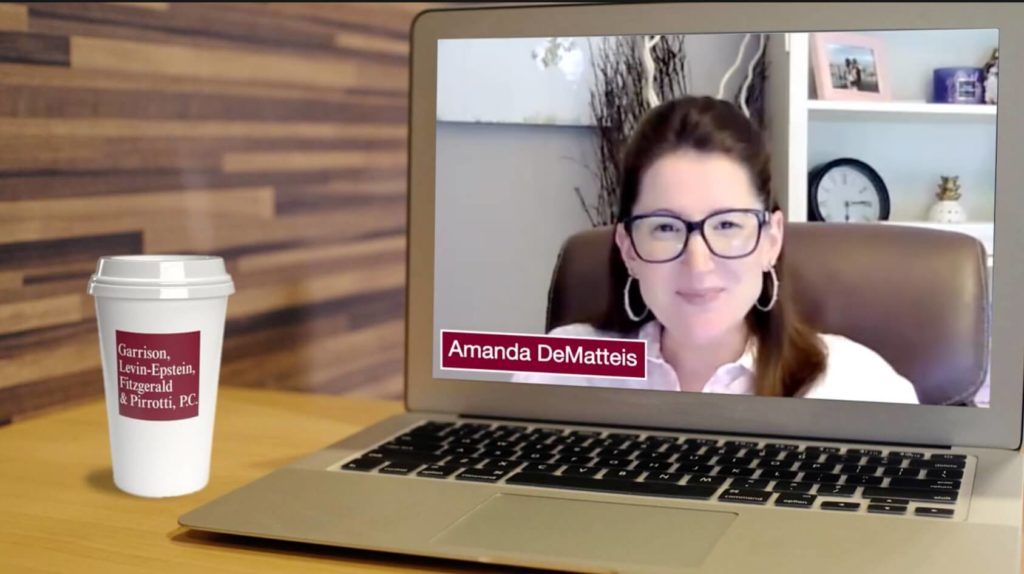Sep 28 2022
Amanda DeMatteis: Hi, Josh!
Josh Goodbaum: Hi, Amanda! What are we talking about today?
DeMatteis: Well, we’re still dealing with COVID, whether we want to be or not, but it’s continuing to raise issues for Connecticut employees. Many Connecticut employees are still working from home – I’m in my home office right now as we have this little chat – and I think a lot of people are wondering, “While working from home, what can or cannot my employer do by way of surveilling and keeping track of whether or not I’m actually working while I’m on the clock, albeit from home?”
What do you know about that?
Goodbaum: Well, surveillance of employees working from home is an issue that’s getting a lot of attention right now. The New York Times did a multi-part exposé about this issue of workplace surveillance and something they call the “worker productivity score.” And basically, what a lot of employers are doing is they’re using software that they have installed onto their devices or forced their employees to install onto their devices that does a variety of things to surveil the employee during the workday. So, this software sometimes takes a random screenshot of what the employee is doing, sometimes takes a video at a random time of what the employee is doing, sometimes it calculates how often the employee is typing or clicking their mouse or whether the computer goes inactive. And all of this goes into an algorithm and the employer comes out with objective data about who is doing what when and who’s not doing it. Some employers are even docking employees’ pay based on the results of these worker productivity score audits.
So, what Connecticut employees want to know is, “How much privacy do I have in my home if I’m working from home, and is this legal? Can they do that?” And the answer is, for the most part, your rights as an employee working from home are really limited. For one thing, most employers who are allowing you to work from home using technology they have provided are going to require you, as a condition of your continued employment, to consent to them monitoring you through that technology. So, you have probably already consented to what feels like surveillance to you, and they’re allowed to do that. Your employer is allowed to condition your use of their technology for employment purposes on you giving them permission to use it to monitor you.
Now, the answer might be slightly different for public employees – employees who work for the government. For one reason, they tend to be more unionized as a workforce, and unions have a right to bargain about the conditions of employment with employers, and workplace surveillance is one of those conditions of employment. So, if you’re in a union and you feel like something inappropriate is happening with respect to workplace surveillance, talk to your union. See if that’s something they can bargain about.
The second thing that comes up for public employees is that they have constitutional rights because the Constitution applies to the government, but not to private employers. Now, that said, in the limited case law we have available, the U.S. Supreme Court has said that employer searches of employer-provided technology do not violate the Fourth Amendment, which is the prohibition against unreasonable searches and seizures. So, if your employer is monitoring what you do on the computer they gave you to do your job at home, you probably don’t have a cause for complaint from a constitutional perspective.
Now, one response I’ve seen from employees to this issue of workplace surveillance is to come up with new hardware. I’ve seen one that is called – and I kid you not – the “Mouse Jiggler,” which is a piece of technology that periodically moves the mouse in order that the employee seems like they’re active on their computer even when they’re not. So, is that okay? Well, the employer could prohibit you from using the mouse jiggler – I suppose they probably would if they knew you were using it – and so I think the answer is that you can use it if you’re willing to accept the risk that, if your employer finds out about it, you might be terminated.
Ultimately, it seems like, with the work-from-home paradigm, with employees increasingly working from home, we’re now in a situation where employers are looking for ways to make sure that their employees are working, and I think this issue of workplace surveillance, and the worker productivity score, in particular, may be things that are here to stay.
DeMatteis: Amazing. These are just things that we weren’t talking about even a few years ago, but really helpful information for Connecticut employees to have.
Thank you so much, and thank you for watching. We’ll see you!
Posted by Garrison, Levin-Epstein, Fitzgerald & Pirrotti, P.C. in Commentary
Tagged Amanda DeMatteis, Joshua Goodbaum








